5 Days in Lisbon What to Do
With this 5 day itinerary, you will get to explore both Lisbon and Porto as well as head out of the city to admire the palaces at Sintra. Get to see and understand the Portuguese heritage as you compare both cities – Lisbon, the capital of Portugal, is utterly charming with its iconic yellow trams and narrow streets yet it has nightlife on a part with Barcelona and Milan. Porto meanwhile, is a fusion of old and new, the place to enjoy authentic Portuguese culture with an eclectic twist. If on the other hand, you are visiting Spain on the same trip have a look at this Spain and Portugal itinerary,
Disclaimer: This post contains affiliate links. This means that should you click on certain links, and then subsequently purchase a product, I will receive a small commission. It costs nothing extra to you but helps keep my site running. Thank you for supporting me in this way.
Portugal Itinerary: 5 days in Lisbon, Sintra and Porto
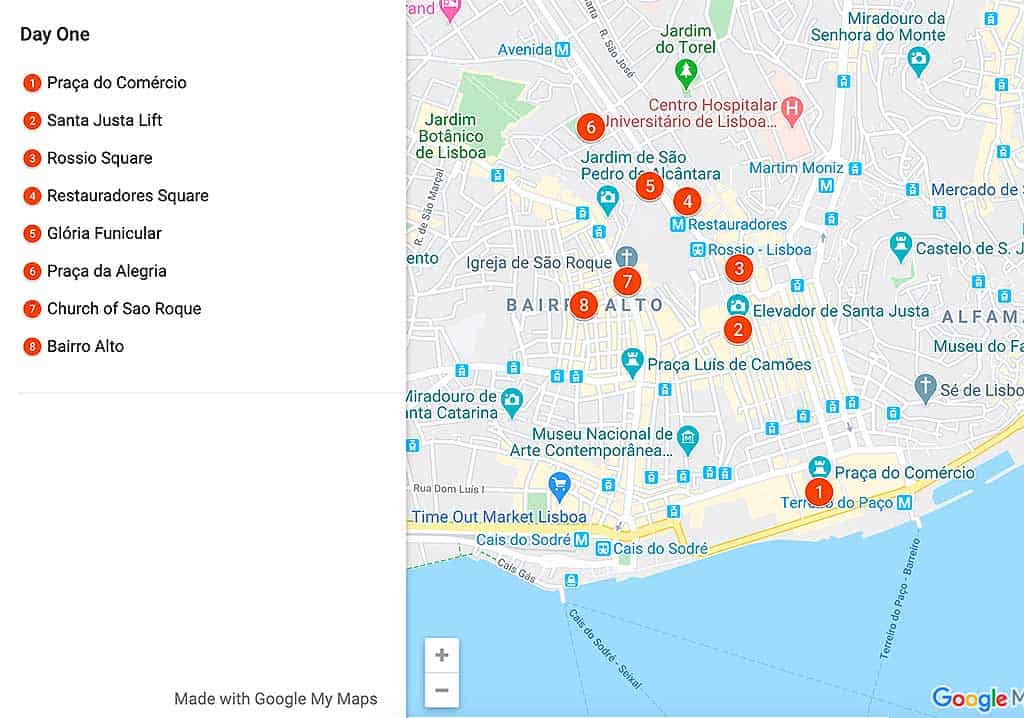
5 days in Portugal: Day One – Lisbon
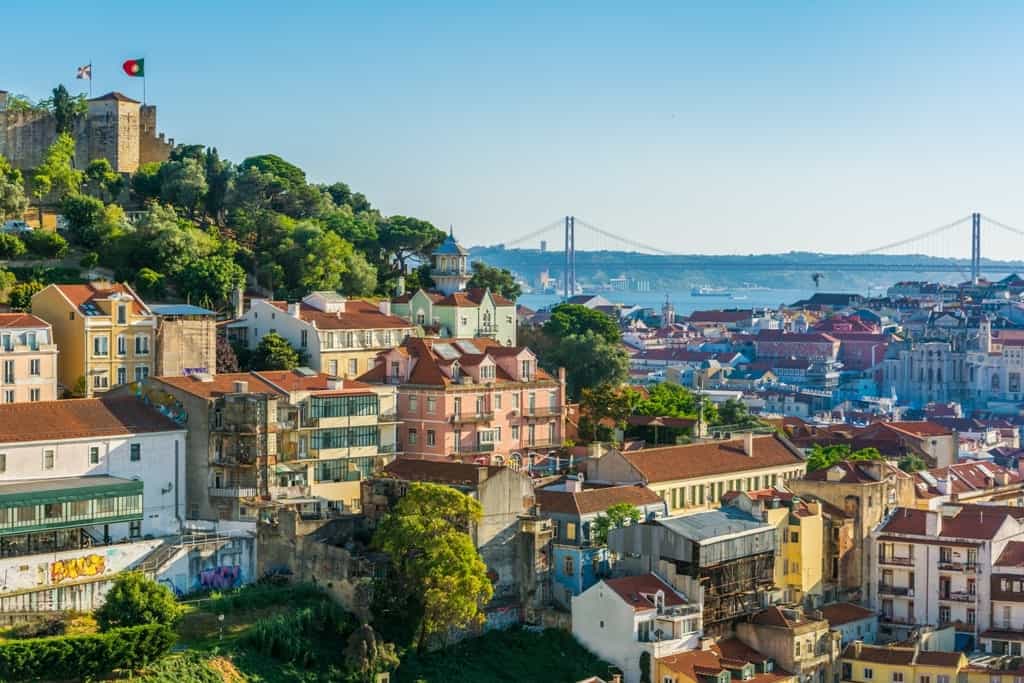
How to get from Lisbon Airport to the City Centre
Lisbon International Airport (Lisbon Humberto Delgado Airport is otherwise known as Portela Airport) is located 7km (4.3miles) from the city center so you'll soon be off the plane and into the city no matter which transport method you choose.
Metro
The red metro line runs from the airport to Saldanha station which is in the finance district of Lisbon. If not staying in this part of the city, you can change trains at Saldanha onto one of the other 3 lines and continue your journey into the heart of the city center in another 10 minutes. Metro trains operate from 6 am-1 am daily.
Time: 15-25 minutes depending on destination
Cost: 1.40 EUR
Express Airport Bus
Aerobus is an express bus service with 2 lines that run every 20minutes from 8 am-9 pm. The vehicles have luggage racks inside the vehicle, perfect if you're traveling with large suitcases, and benefit from screens clearly showing you the next stop.
Aerobus 1 goes to Rossio (the city center) calling at 7 stops on the way. Aerobus 2 goes to Cais do Sodre (the finance district) stopping at 8 places on the way. Check routes here.
Arriving after 9 pm? Catch the night bus (No 208) to Cais do Sodre. The first night bus departs Lisbon airport at 11.42 pm with buses every hour after 12.42 am until 3.42 am and a final night bus service at 4.12 am.
Time: 30 minutes
Cost: 3.60 EUR on AEROBUS (1.80 EUR on the night bus)
Taxi
Plenty of taxi's wait outside the arrivals hall exit. Taxies are metered so the cost depends on traffic and your final destination. There is a surcharge for excess luggage and for night time journeys. Note that if there are 4 of you traveling, the taxi driver may refuse to take all 4 of you at night due to safety concerns of having 1 passenger sitting in the front seat, not behind the protective barrier.
Time: 10-15 minutes
Cost: Average 15-25 EUR
Private Transfer
I used Welcome Pickups to go from Lisbon airport to the city center and I highly recommend them. The company charges a flat fee and uses English-speaking, drivers who are friendly and helpful so it'll feel like a friend is collecting you from the airport, there to meet you outside of the arrivals hall and push your luggage to the car. They also sell SIM cards, wifi hotspots, and tickets to the major attractions which saves you time in hunting out the tech and queuing for tickets!
Time: 10 minutes
Cost: 24-26 EUR
Click here for more information and to book your transfer.
Alternatively, you can book a shared transfer to or from the airport.
Tip: A great way to save money and time is a 24, 48, or 72-Hour Lisbon Card that includes free admission to more than 23 attractions, many discounts and free and unlimited access to the public transportation system.
Make the most of your 1st day by exploring in the heart of Lisbon. The Baixa district (officially Baixa Pombaline) was rebuilt after the devastating earthquake of 1755 and is set out in grid-like fashion. It's an elegant district with plenty to see and do.
Praça do Comércio
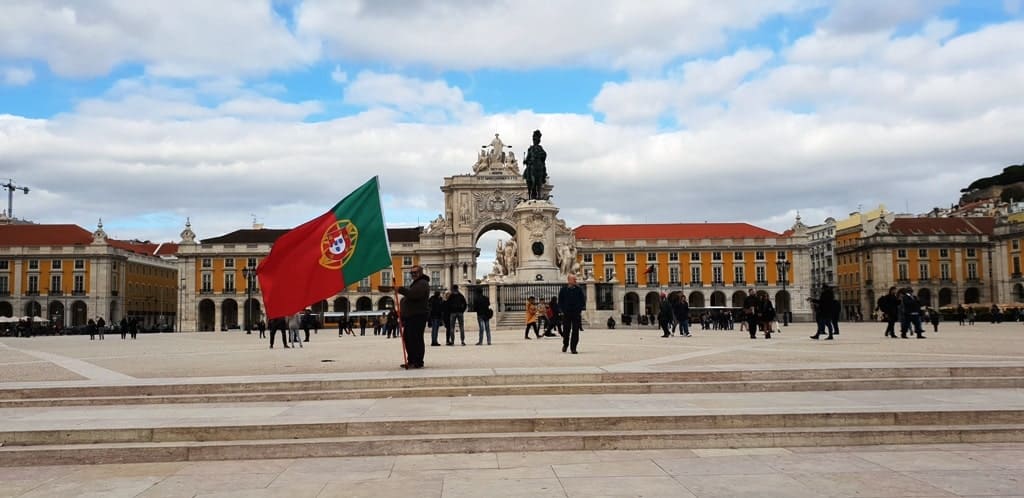
Start your sightseeing explorations from this large grand square, the square of commerce located on the bank of the River Tagus. Otherwise known as Terreiro de Paco (Palace Yard), it was once the site of the Royal Palace (until the 1755 earthquake) but today is visited for the stunning view across the Tejo Estuary and the iconic yellow Pombaline architecture. At the center of these government buildings stand the decorative Arco da Rua Augusta, a tall triumphal arch-like building adorned with statues depicting historical Portuguese figures and on the very top, Glory rewarding Valor and Genius.
Santa Justa Lift
This famous and historical lift (the only vertical, conventional elevator to remain) measures in at 45metres (147feet) high and connects the lower Baixa district with the upper Largo do Carmo district, allowing both locals and tourists to quickly and easily move between both districts, whilst enjoying the view!
Be Patient – The lift can carry 20 people on the journey up (and only 15 people on the journey down) so you may have to queue a while to make this iconic journey between the 2 districts but it's worth the wait.
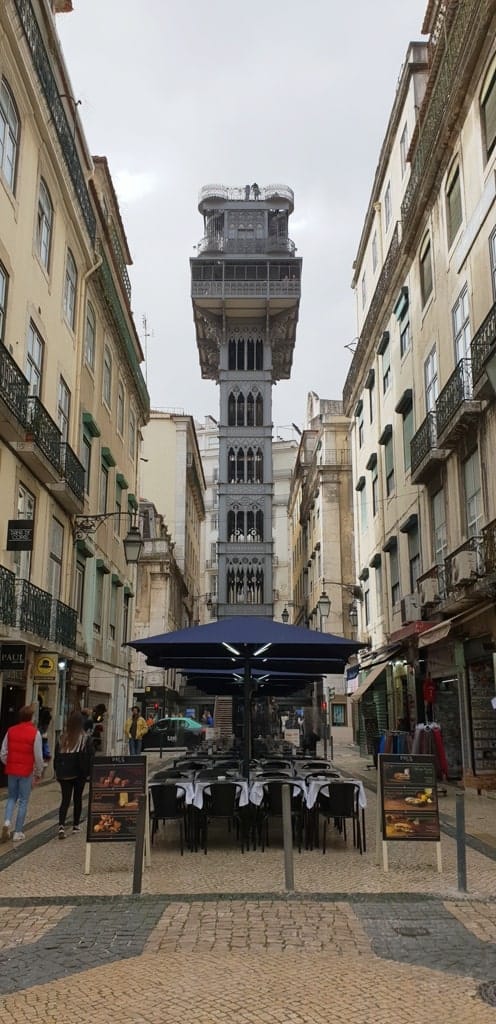
Free entry with a Lisbon Card.
Rossio Square
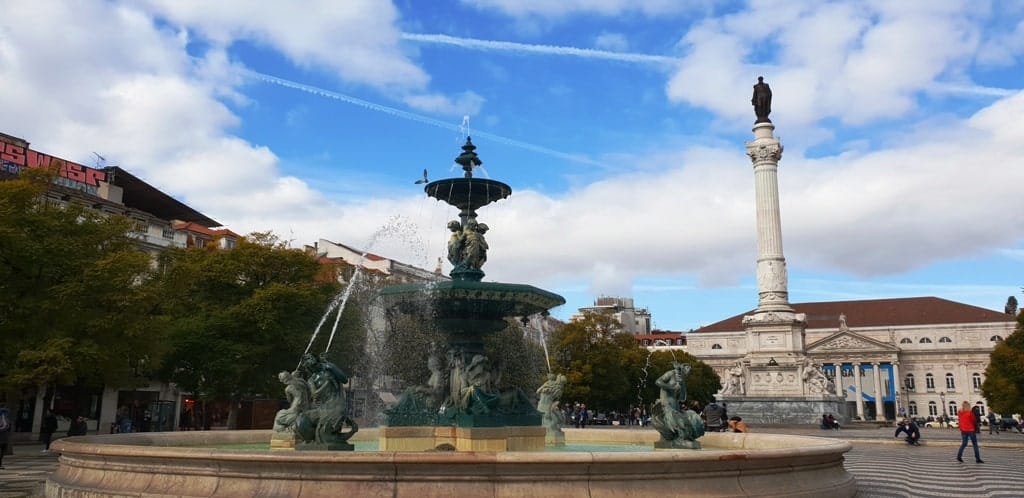
A popular central square in Portuguese culture since the Middle Ages, this square (otherwise known as Pedro IV Square) is surrounded by shops and cafes and also contains the beautiful neoclassical Dona Maria II National Theatre. Used as a place of public execution in the past, you're as likely to see a protest as you are a celebration in the square today. At either side of the square stand 2 baroque fountains whilst in the center, you cannot miss the 27-meter high monument to Dom Pedro IV.
Praça Dos Restauradores
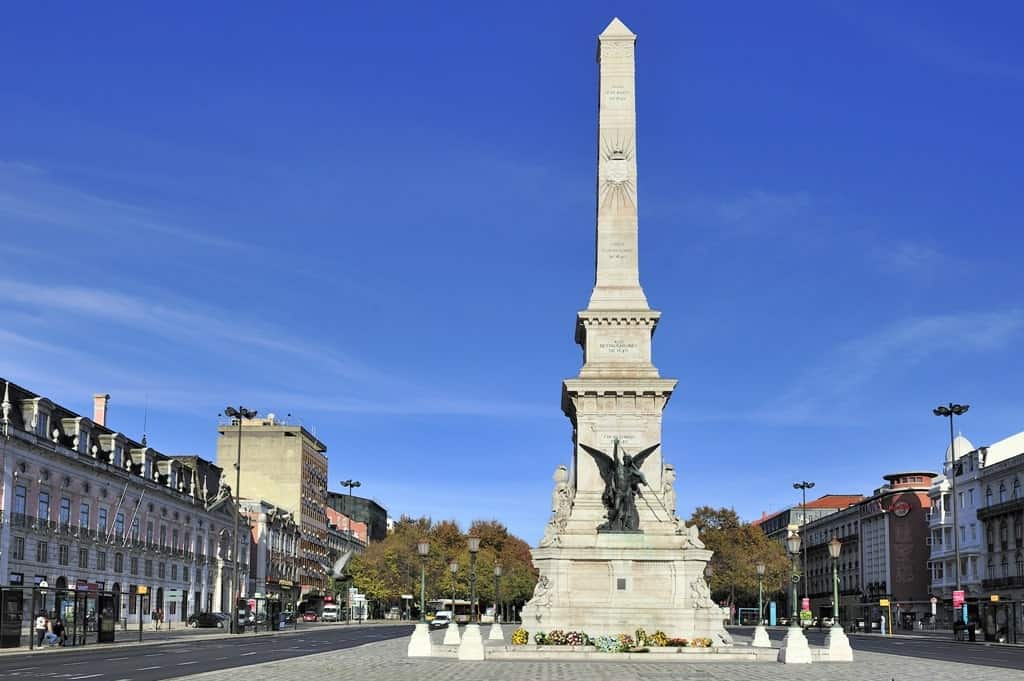
The most unique square in Lisbon, Praça Dos Restauradores contains 17th-century neoclassical architecture, the Restauradores Obelisk, the pink Foz Palace (now home of the tourist information office) as well as Art Deco Eden Theatre (now a hotel). Enjoy a spot of people watching here as you stop for a drink/snack.
Elevador da Gloria
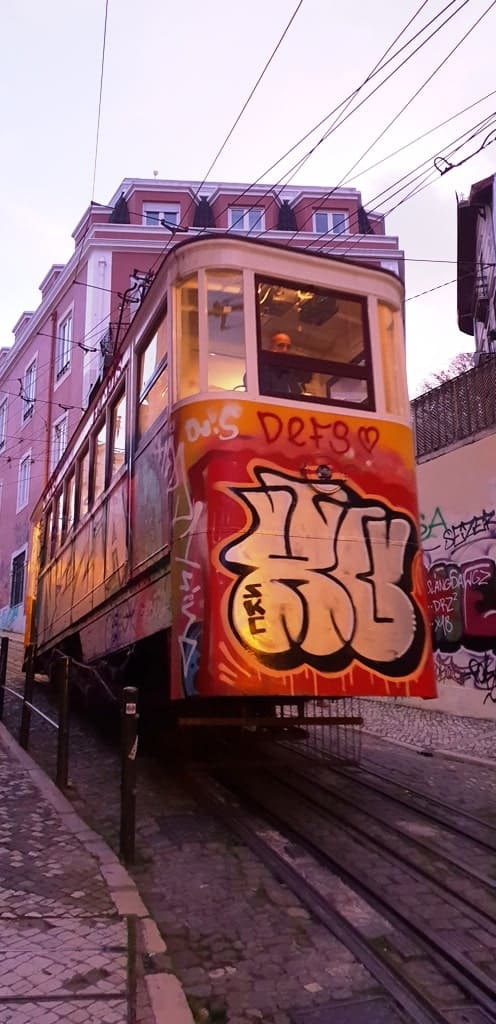
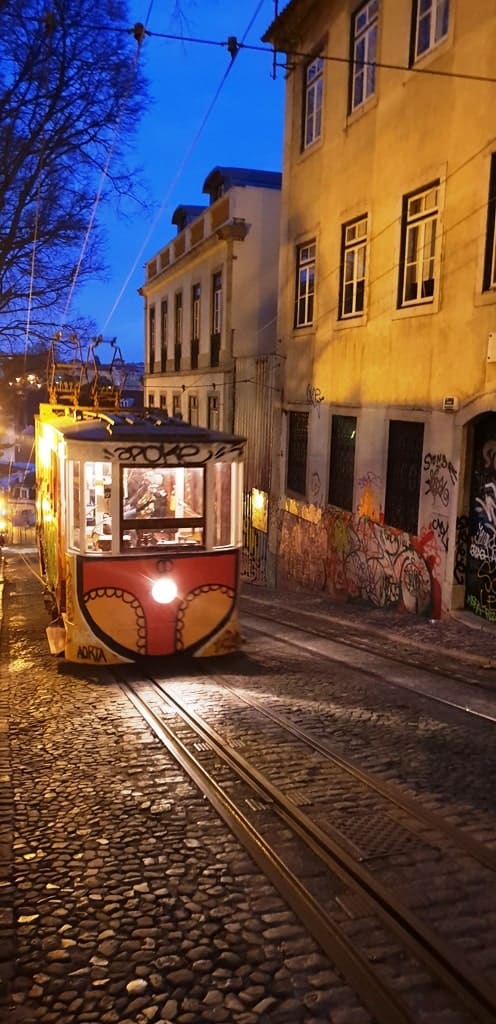
Close to Praça Dos Restauradores is the iconic 2-carriage yellow tram (1 of two 19th century funiculars, the other being the Bica Elevador) that carries passengers up the steep hill. Hop on board to explore the districts of Chiado and Bairro Alto which are full of boutique shops, cafes, bars, and more tourist attractions.
Praça da Alegria Viewpoint
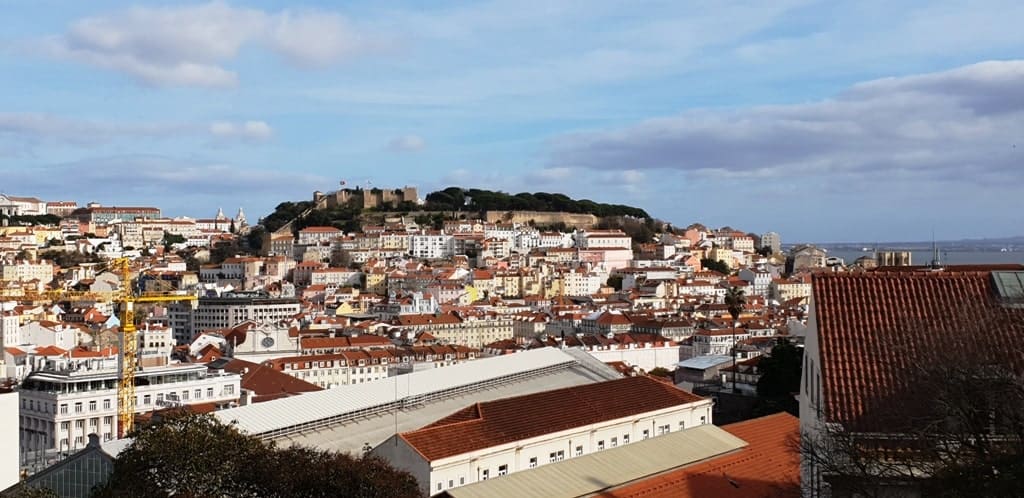
Sit and admire the panoramic view overlooking Baixa from this viewpoint before seeing what trinkets the market/street vendors are selling. You might also want to see (and photograph) the bronze bust of Alfredo Keil, a 19th-century Portuguese painter, and composer as you make your way around the paths lined with banyan trees and palm trees.
Igreja de Sao Roque
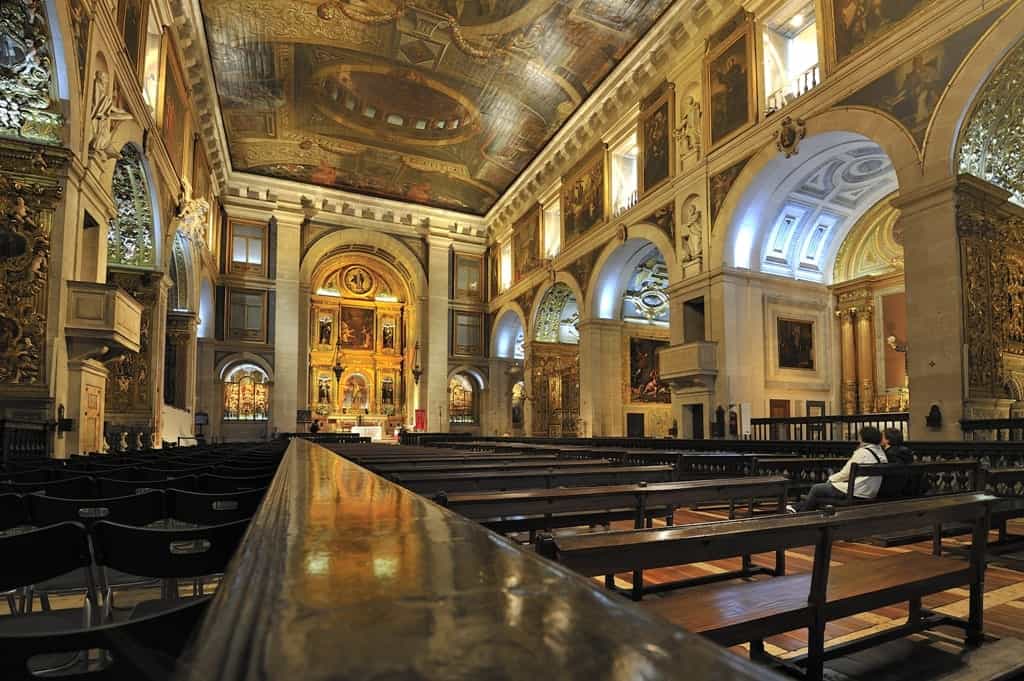
The first Jesuit church in Portugal, and in fact one of the first Jesuit churches in the world, the church of Sao Roque might not look much from the outside with its simple whitewashed exterior but step inside and have your breath blown away. Inside you'll find an exquisite gilded interior with some of the finest examples of Jesuit sacred art. A museum is located next door to the church for visitors who want to learn more.
Fado in Bairro Alto
Depending on how you're fairing after your journey to Lisbon, spend the evening in the city's hip and happening Bairro Alto district where you can enjoy traditional fado musical performances whilst sipping a drink. You'll find many touristic venues offering fado (a traditional genre of romantic Portuguese music) but for the best experience, wander the neighborhood seeking out a smaller, more intimate bar. If you're too tired to do this on your first night in Lisbon, be sure to head back before you leave!
Click here for more information and to book your tickets.
5 days in Portugal: Day Two – Lisbon
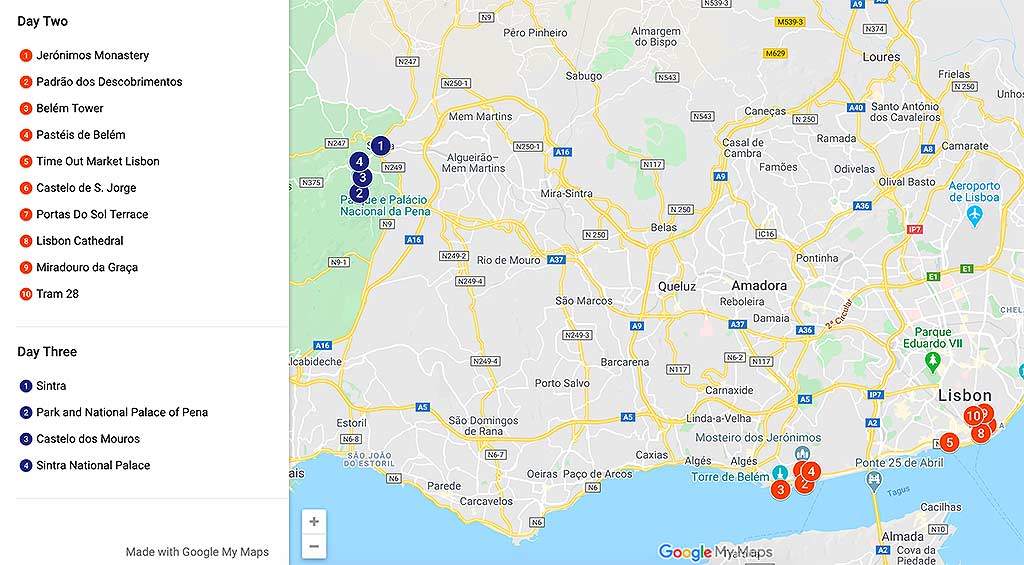
Mosteiro dos Jeronimos
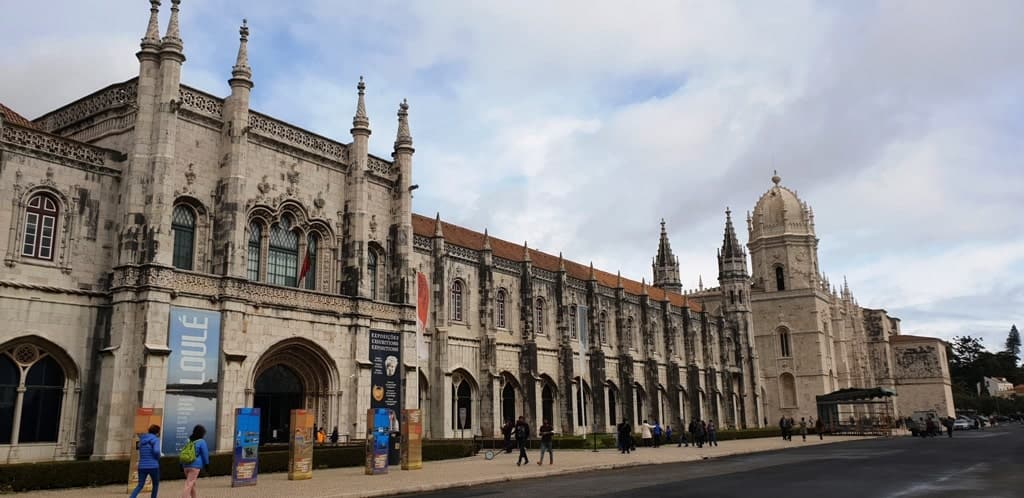
An outstanding example of Late Gothic Manueline architecture, the 500-year-old Jeronimos Monastery complex is huge, spanning a large city block. Be sure to visit the cloisters and the Church of Santa Maria as you admire the highly ornate Manueline (maritime) decoration and learn the connection and history of the early sailors (explorers) including Vasco da Gama who spent his last night here before his voyage to the Far East.
Free entry with a Lisbon Card.
Padrão dos Descobrimentos
Standing opposite the Jeronimos Monastery, moments away from where the Portuguese navigators set sail for India and China in the 15th and 16th centuries, stands a monument that celebrates the Age of Discovery. Figures of Henry the Navigator, Vasco da Gama, Ferdinand Magellan and more than 30 other people make up part of this imposing monument.
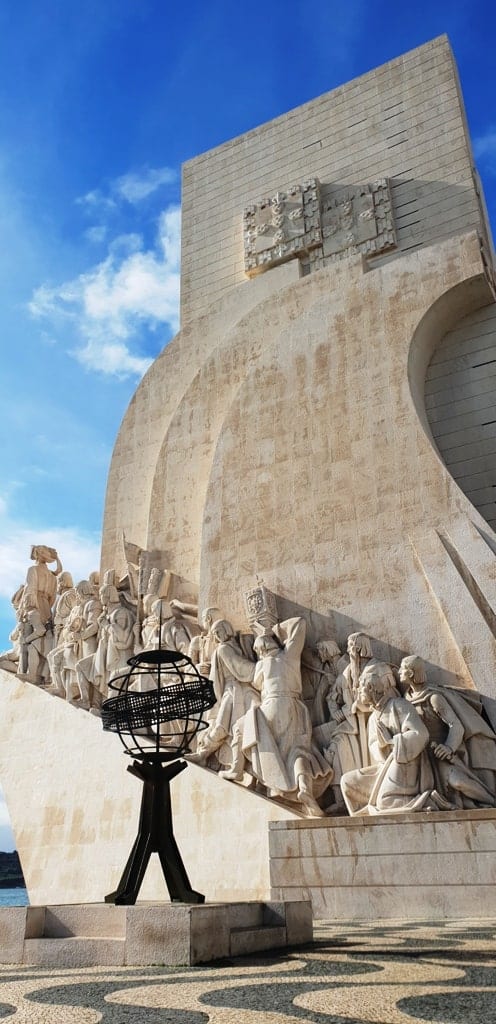
– 20% with Lisbon Card
Torre de Belem
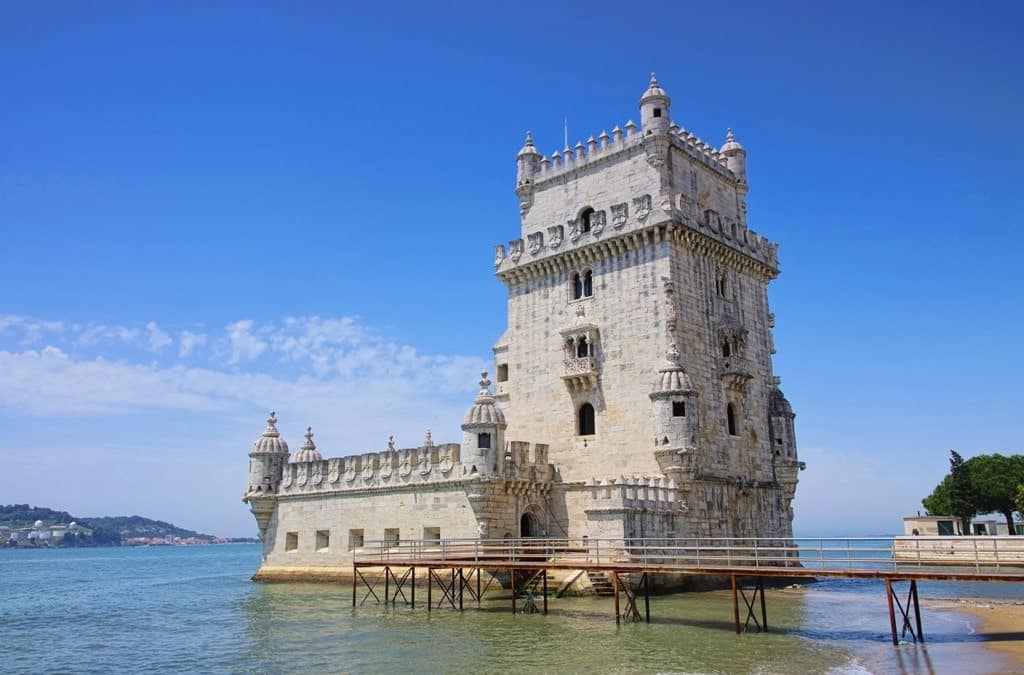
Built on the shore of a small island to guard Lisbon harbor, The Tower of Belem (or the Tower of Saint Vincent as it's otherwise known) made up part of the city defenses in the 16th century. Mostly featuring Manueline architecture, Moorish styles can also be seen on the tower which was both a fortification and a ceremonial gateway, the starting point of many seafaring voyages of discovery.
Free entry with a Lisbon Card.
Pastéis de Belem

Has the sea air made you peckish?! Stop by Pastéis de Belem and delight your tastebuds with a Portuguese egg custard tart dusted with cinnamon. These traditional treats are called Pastel de Nata and it was at this very patisserie where they were first sold in a shop, the ancestors of the family who still own the shop to this day, buying the original recipe off of the local monks.
Time Out Market
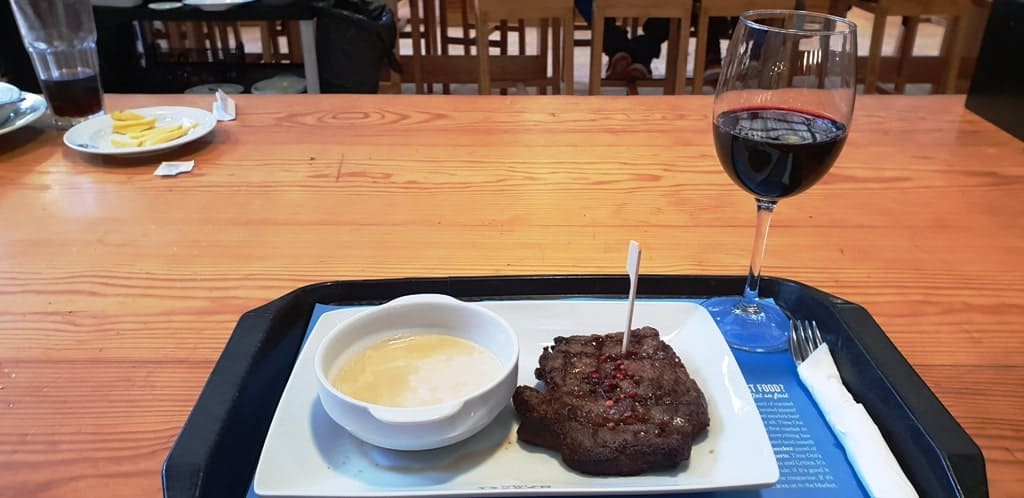
Ready for lunch or a snack? Head to the massive food hall located within the Mercado da Riberia market to find some of Lisbon's best chefs cooking up a storm. As well as some of the best restaurants's in the city you'll find many cultural events taking place at the market too.
The Castelo de Sao Jorge
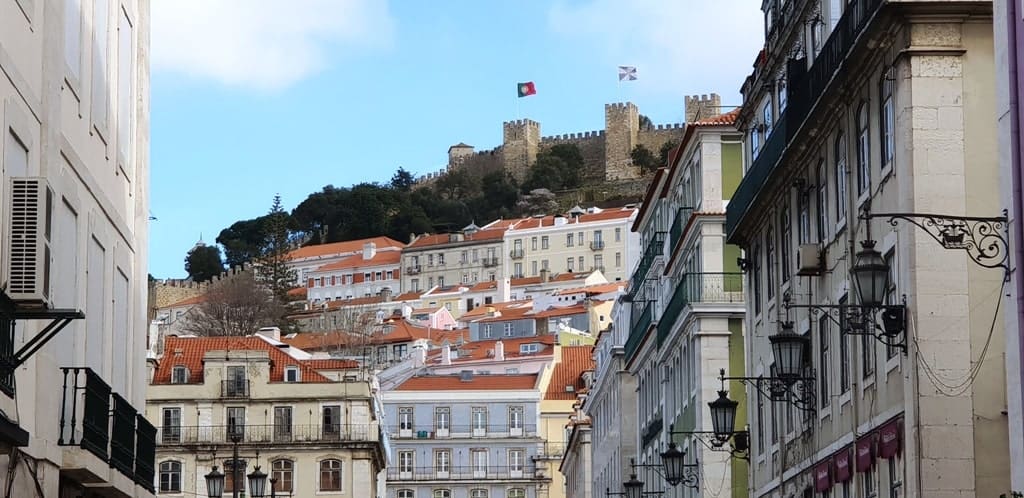
This 12th century Medieval castle sits at the top of the Alfama district, towering over the city with magnificent views out to sea. Much of Lisbon Castle was destroyed in the 1755 earthquake so what you see today has mostly been restored but that doesn't stop visitors from enjoying a tour to understand the turbulent history of this castle that has witnessed it all; the fall of the Romans to the Visigoths, the conflict between the Arabs and Christians, and the sieges by the Castilians.
The Portas do Sol viewpoint
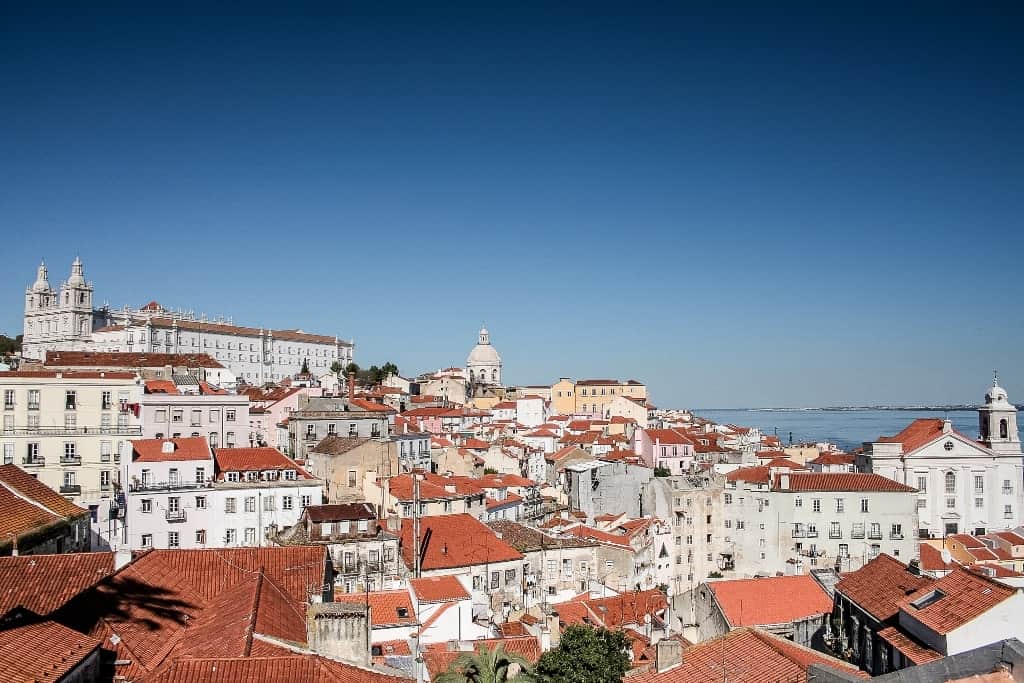
Located between the cathedral and the castle you'll find one of the best viewing points of Lisbon, which also makes it one of the most popular. You've probably seen photos of this view, photos that made you want to come to Lisbon in the first place! Well, stand here and admire the view of whitewashed buildings with red-tiled roofs with views out to the Tagus estuary for yourself.
Sé de Lisboa
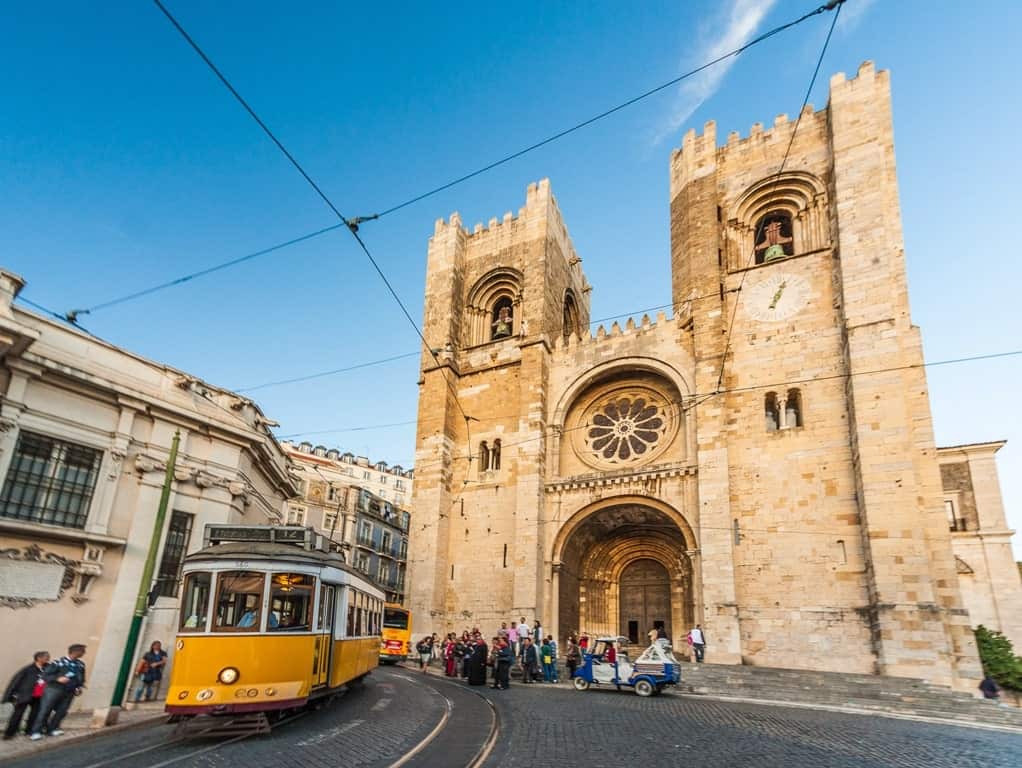
The imposing-looking 12th-century Romanesque cathedral (known as The Sé) managed to withstand the earthquake of 1755 and is the oldest church in Lisbon. It stands on the site of a mosque and from the outside, looks rather like a medieval fortress, but step through its doors and you'll be able to see the Baroque interior with a detailed nativity scene in the chapel, and historical font where St Anthony was baptized in 1195, the patron saint of Lisbon.
Miradouro da Graça viewpoint

Ready to admire more of the city views whilst resting your feet?! The popular Miradouro da Graça viewpoint has extensive views across the castle with superb views of the castle. If too busy to be enjoyable, head to an alternative viewpoint; Miradouro da Santa Luzia. You'll find the same views hidden behind a small church in a shady garden lined with picturesque blue and white tiles but without the hustle and bustle of all the other tourists!
Tram 28
One of the oldest in Lisbon, as well as the most iconic, Tram 28 travels along one of the most scenic routes in Lisbon making it a popular tourist attraction in its own right. Hop onboard tram 28 and wind your way through the steep and narrows streets of the Alfama, Baixa, Graca, and Estrela districts.
Wander in the Alleyways
Hop off the tram at any point along its iconic route and get a real taste for Lisbon life by leaving the tourist trail behind and wandering along the alleys that lead off of the main streets. Local shops, residential property, and a kaleidoscope of street art can all be found around the next corner. Enjoy!
If you decide to spend just one day in Lisbon you can check out this itinerary.
5 days in Portugal – Day Three Sintra
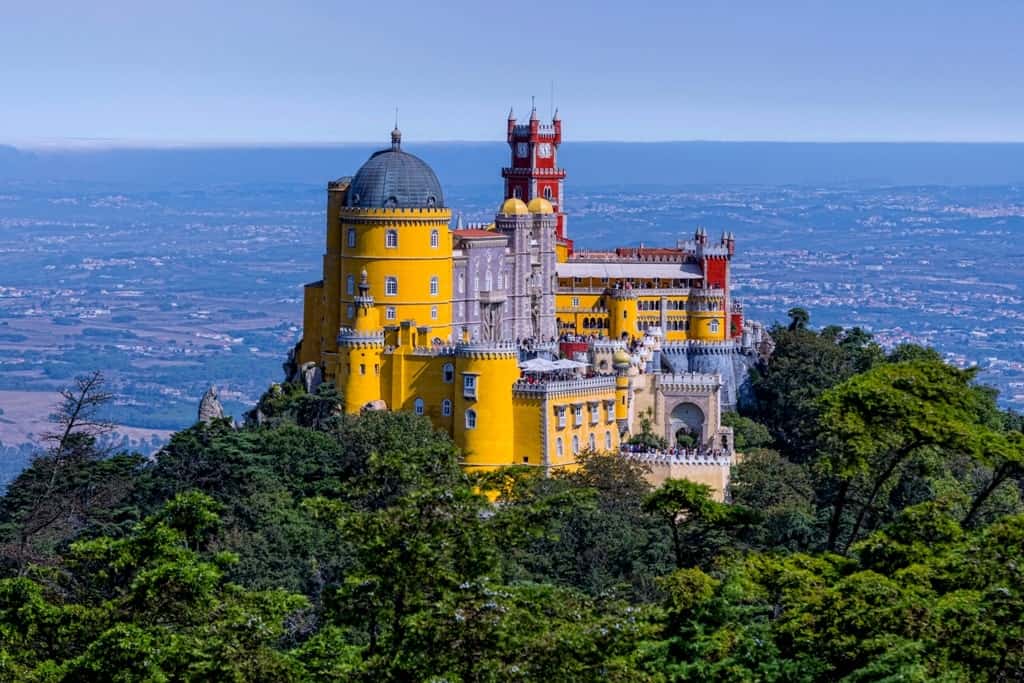
Known for its many picturesque and colorful palaces, the charming Portuguese town of Sintra is just 25km from Lisbon and well worth a visit.
How to Get to Sintra from Lisbon
Train
Traffic is a problem in Sintra so for the fastest/easiest journey, the train is highly recommended.
Direct trains (run by CP) depart Rossio train station in the Baixa district (opposite the Rossio green line metro station) for Sintra station every 15-30 minutes. Once in Sintra you can walk to the historic center from the train station (if you're fit and able to walk steep hills!) or take the 434 bus (6.90 EUR) which does a one-directional loop of the town passing the most important sights and dropping passengers off near the Pena Palace and Moorish castle.
Time: 40minutes
Cost: 4.30 EUR return ticket
Free transportation with the Lisbon Card.
Alternatively, you can book a small group full day tour from Lisbon to Sintra and Cascais.
Things to see in Sintra:
Palacio da Pena
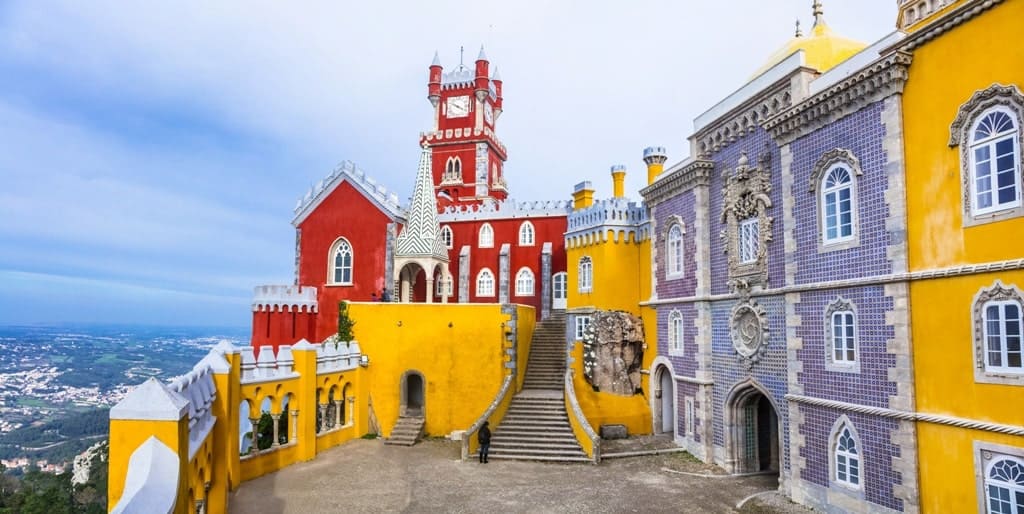
The most iconic and famous of all the Sintra palaces with its hilltop location and colorful yellow and red facade, Palacio de Pena is located in the beautiful Sintra Mountains above the historical old town. The palace and park (forest and landscaped gardens containing 500 different species of tree) were created by King Ferdinand II in 1843 and are built upon an old monastery.
-10% with Lisbon Card
Castelo de los Mouros
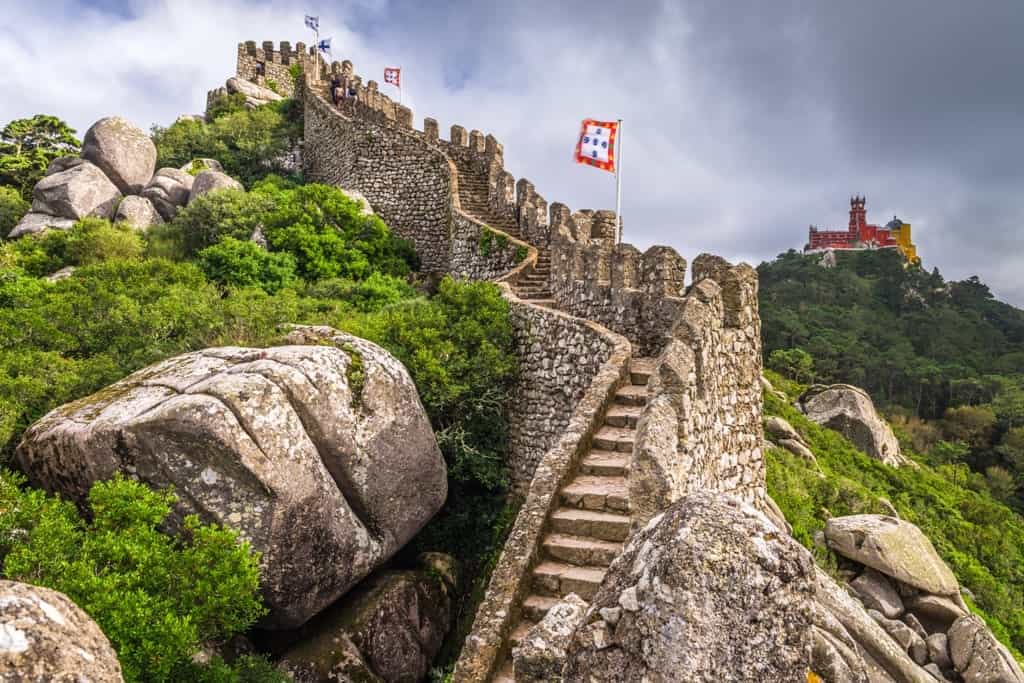
The ruins of this 8th-12th century Moorish Castle were restored in the 19th century in the Romanesque style by Dom Fernando II. The ruins, now interwoven with the forest, are located along the same mountaintop ridge as the Pena Palace. Be sure to climb to the top to take in the breathtaking views as well as see the Moorish Cistern and the so-called Royal Tower.
-15% with Lisbon Card
Palacio Nacional de Sintra
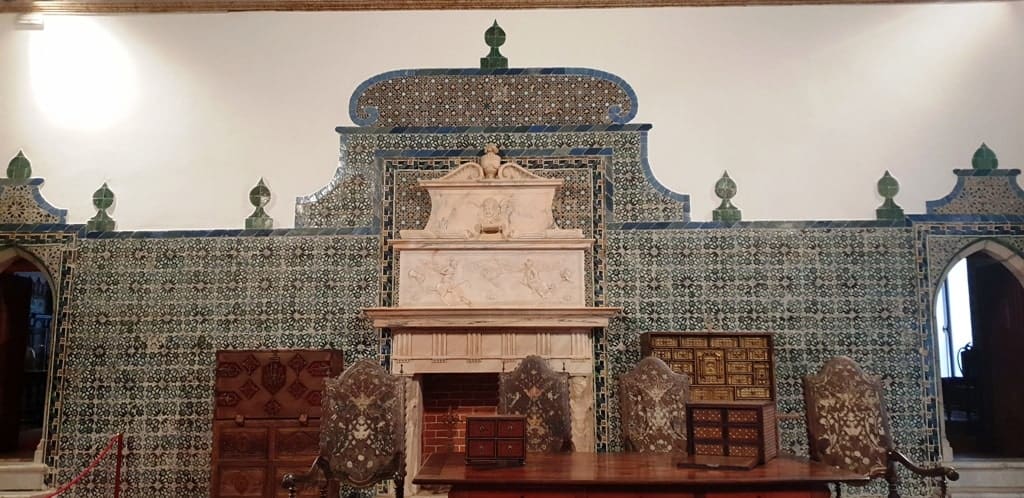
The National Palace of Sintra was a favorite of the Portuguese Royal Family from the 15th-19th century and stands in the historic centre of town. With its white Gothic exterior, the Medieval palace couldn't appear more different than the vibrant Palacio da Pena but as you know, no book nor building should be judged by its cover. Step inside the National Palace of Sintra and you'll see it's just as elaborate as the palace on the hill.
-10% with Lisbon Card
5 days in Portugal – Day Four Porto
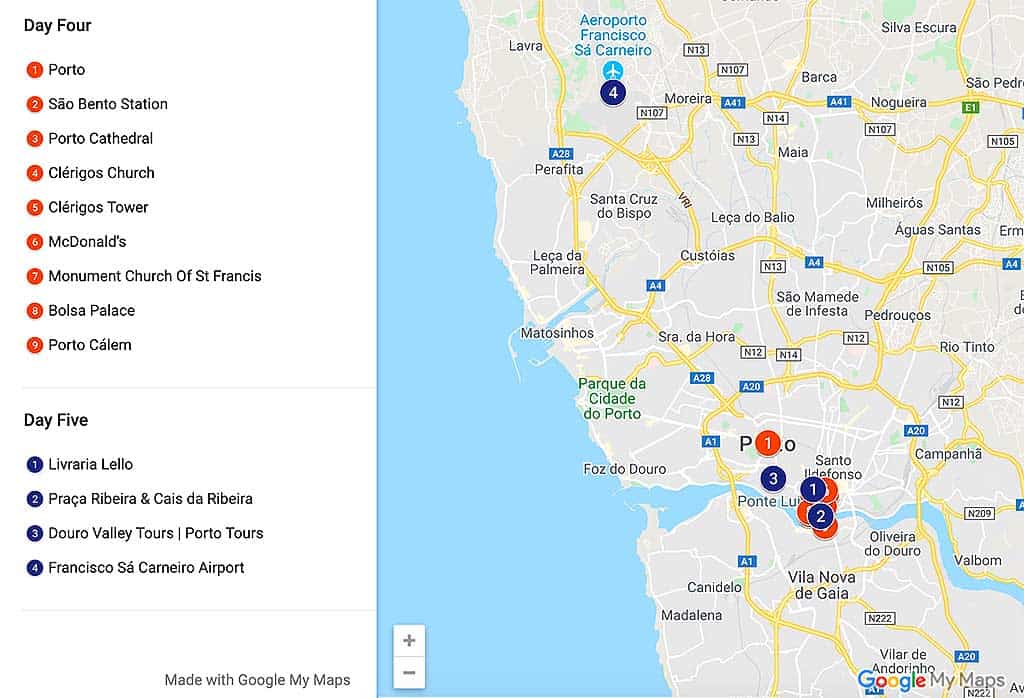

Pack your bags, it's time to leave lively yet lovely Lisbon behind and head north to Portugal's second city; Porto. Famous for its Port wine, Porto is a city steeped in history and culture that somehow feels more authentically Portuguese. The city's compact size makes Porto perfect for a walking tour.
How To Get from Lisbon to Porto
Train
There are 2 direct train services departing Lisbon for Porto. The Alfa-Pendular train (AP for short) is the fast modern train with WIFI onboard whilst the Intercidades train (the Intercity train) is the slower of the two with older trains offering less comfort. Both services depart from the same stations, either Santa Apolónia train station (the old station in the historic center) or Oriente station (the modern train station close to the airport). All trains stop at Campanhã train station in Porto but if you wish to reach the historic center and are traveling on the AP service you must switch trains to continue on to São Bento train station.
Time: 2.35 – 3.10 hours
Cost: 25 – 45 EUR average
Express Coach
Rede Expressos is the coach company traveling from Lisbon to Porto, look for the white buses with a red stripe. At least 20 coaches depart daily, the first coach departing just after midnight and then more regularly every 30-60 minutes from 7 am-9.30 pm from Lisbon's Sete Rios Bus Station (jump on the blue line metro getting off at Jardim Zoológico Metro Station in order to reach the bus station). The drop off point in Porto is at Terminal Rodoviario on the Campo 24 de Agosto, it's, close to a metro station that will take you into the historic city.
Time: 3.5-4.5 hours
Cost: 19.00 EUR average
Plane
Both cities have airports with several daily flights to choose from, most operated by TAP or Ryanair but taking into account waiting time at the airport, not to mention getting to/from each airport, it's often faster and easier to take the train or coach.
Time: 55 minutes
Cost: 20-50 EUR
Porto São Bento Train Station

If you've taken the train from Lisbon to Porto (or even if you arrived a different way!) the São Bento Train Station is a must-see, both the exterior and the interior with the 20,000 azulejo tin-glazed ceramic tiles cover the walls, all with a story to tell.
Porto Cathedral
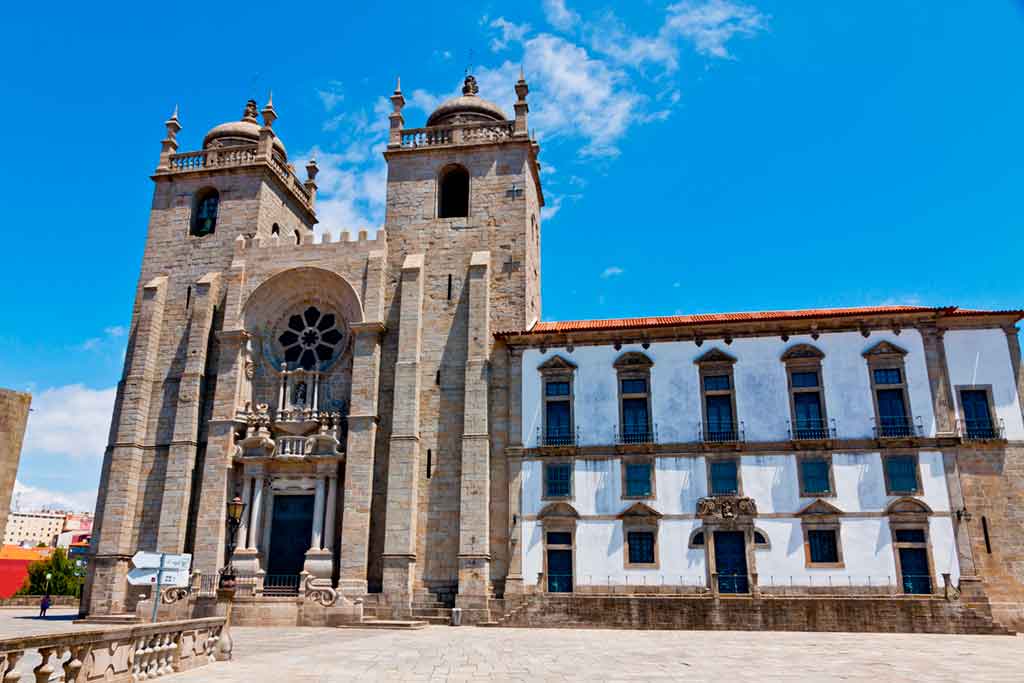
The 12th-century cathedral (known as The Se) towers above the city and is a national monument of Porto being one of the oldest and most important buildings. Looking more like a fortress than a church at first glance, Porto Cathedral combines a mix of Baroque, Romanesque and Gothic styles of architecture. Take a walk along the magnificent Gothic cloisters noting the bible scenes depicted in the painted tiles after you've seen the interior.
Clérigos Church + Clérigos Tower

This beautiful Baroque church has an 18th-century tower measuring 75.6 meter high making it one of the most iconic structures in the city. Inspired by the campaniles of Tuscany, it can be seen from all corners of the city. If you have a head for heights, climb the 240 steps to the top to admire the views over Porto and the Douro Valley.
Marvel at the McDonald's in Liberdade Square

Don't worry, you read that right! The McDonald's in Liberdade Square is the most beautiful McDonald's in the world as it's located inside what was once the Café Imperial, a renowned 1930's Art Deco coffee shop. Step inside through the entrance that's adorned by a giant bronze eagle and enjoy your burger sitting beneath crystal chandeliers and besides stained-glass windows.
Church of the Convent of Saint Francis
Built in 1425, this was the last Gothic monument to be built in the city and is one of the most beautiful churches in the world. Its most dazzling feature is the Baroque interior in which all of the ornate surfaces, everything from the walls, pillars, vaults, arches, and ceiling have been sculpted or painted and decorated with gold leaf to form golden angels and cherubs, golden birds, and golden foliage throughout, it's certainly a sight to sit back and admire.
Note – Photography is not allowed inside the church but this shouldn't deter you from going to see inside anyway, take it all in with your eyes rather than capturing a bad snapshot.
Palácio da Bolsa

Book yourself on a guided tour to see the neoclassical former stock exchange palace which was built in the 19th century. The most impressive room is the Arab Room which was modeled on the Alhambra in Granada, Spain but you can also admire the Golden Room (it's covered in gold leaf hence the name!), the General Assembly Room, and the huge granite staircase.

Tip – Tours take place every 30 minutes but it's best to reserve your spot ahead of time to make the most of your precious time.
Port Tasting at Calem
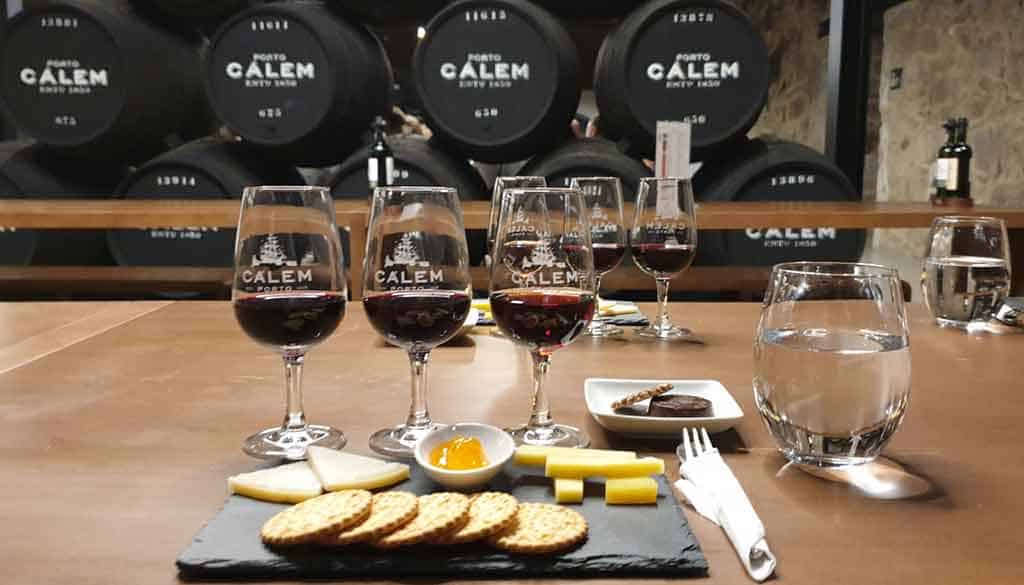
End your day on a wine tasting tour at Porto Calem on the Southside of the Douro River as you learn the history and process of making the famous port wine at one of the Vila Nova de Gaia wine cellars.
5 days in Portugal – Day Five – Porto
Livraria Lello
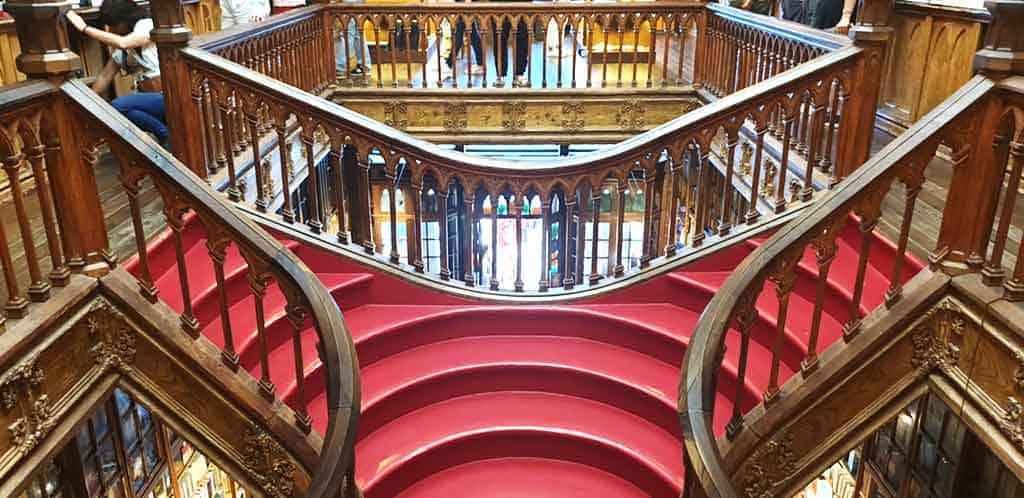
One of the most beautiful bookshops you'll ever visit with its bright red art nouveau staircase and stained-glass ceiling, Livrario Lello dates back to 1906. It is supposedly what inspired J.K Rowling when she came up with Hogwarts in the Harry Potter series. Entry costs 5 EUR but this entrance fee will be deducted from the price of any books you purchase.
Tip – Try to arrive 15 minutes before opening time to enjoy a less crowded experience. You can reserve tickets online.
Cais da Ribeira and Ribeira Square
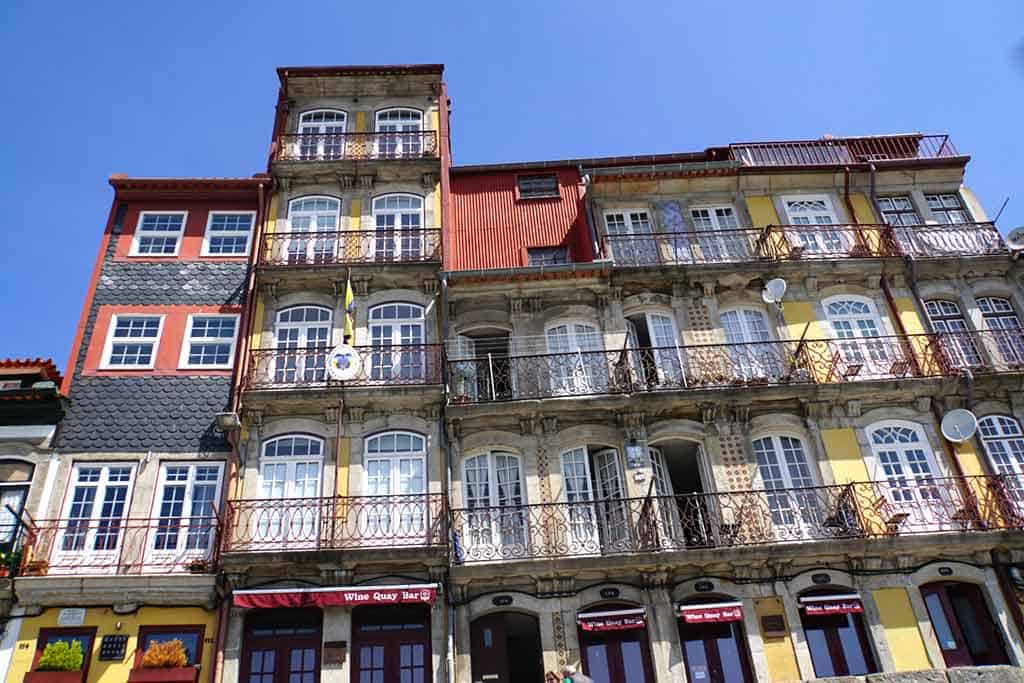
On your last morning in Porto, enjoy a leisurely stroll past the pastel-colored houses and flat-bottomed boats on the waterfront. Explore the medieval lanes and alleyways whilst keeping your eyes peeled for the array of street art that dots the city. Stop for a coffee at one of the many cafes and enjoy the views of the of double-decker iron Dom Luís I bridge – If you have the time, you can walk across the pedestrian walkway taking in the picture-postcard views above the Douro River.
Cruise Down the Douro
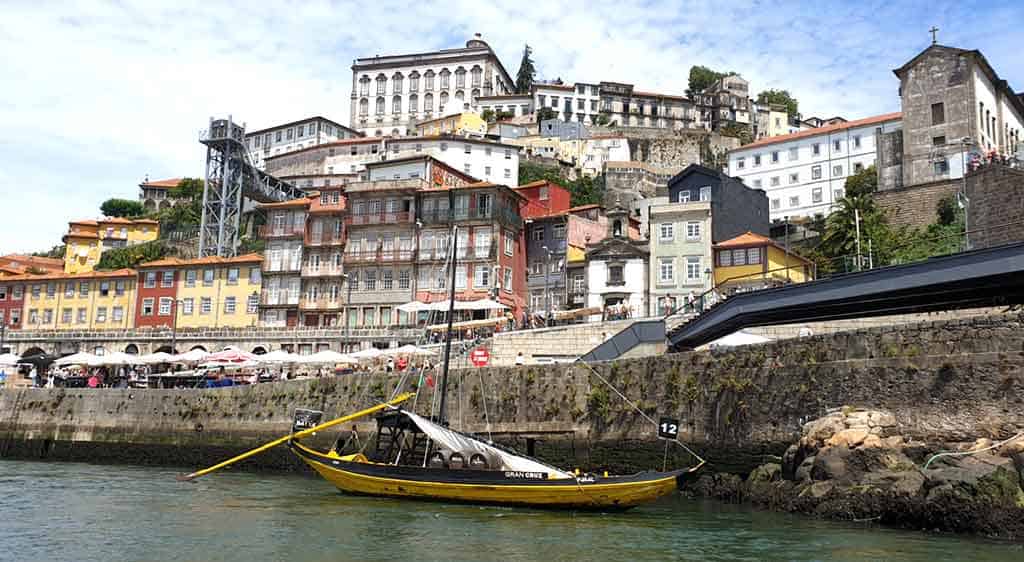
Before you pack your bags and leave Porto behind, take a cruise down the River Douro. The 50 minute 'Six Bridges' cruise is a good tour that follows the route of the old Rabello boats that used to transport the port from the Douro Valley, passing beneath 6 of Porto's most historic bridges that connect Porto to the Porto wine cellars in Vila Nova de Gaia before the mouth of the river opens up to meet the Atlantic Ocean.
How to get to Porto Airport from the City Centre
Porto Airport (Francisco Sá Carneiro Airport) is located 11km (6.8miles) outside of the city center and is easily accessible by public transport.
Metro
Line E of the metro (the overground purple line) runs every 20-30minutes from Estádio do Dragão to the airport between 6.10 am and 12.50 am.
Time: 35minutes
Cost: 2.60 EUR (2EUR if you already have a rechargeable ticket you can put credit onto)
Local Bus
The local bus companies STCP and Resende depart the city center and surrounding area for the airport with regular services (approximately every 30 minutes during the day) and night buses which run every hour.
Lines 601, 602, and 119 run from Cordoaria bus station to the airport from 5.30 am until 12.30 am.
Line 3M is the night bus, it runs from Avenida dos Aliados to the airport from 12.30 am until 5.30 am.
Time: 40 minutes
Cost: 2.00 EUR
Taxi
Metered taxi can be hailed in the street or booked in advance (you must book in advance if you need a vehicle capable of carrying more than 4 passengers). Journeys cost 20% more at night (9 pm – 6 am) and on weekends and holidays.
Time: 20 minutes
Cost: 20-30 EUR
Private Transfer
Welcome Pickups can be booked online and paid for in advance, a friendly English-speaking driver collecting you from your hotel at your chosen time and taking you to the airport for a fixed price.
Time: 20 minutes
Cost: 24-27 EUR
Click here for more information and to book your private transfer.
5 days in Portugal allows you a great introduction to the country, allowing you to visit the most memorable sights in both Lisbon and Porto on 1 trip. Hopefully, it will whet your appetite for exploring more of what the country has to offer on a future trip!
Planning a trip to Portugal? You might be interested in:
A guide to 4 days in Lisbon including Sintra.
What to do in Porto for 2 days recommended by a local.
How to spend one day in Porto.
What to do in Amarante, Portugal.
Things to do in Ericeira, Portugal.
The best day trips from Lisbon.
A day trip from Lisbon to Evora.
PIN IT!
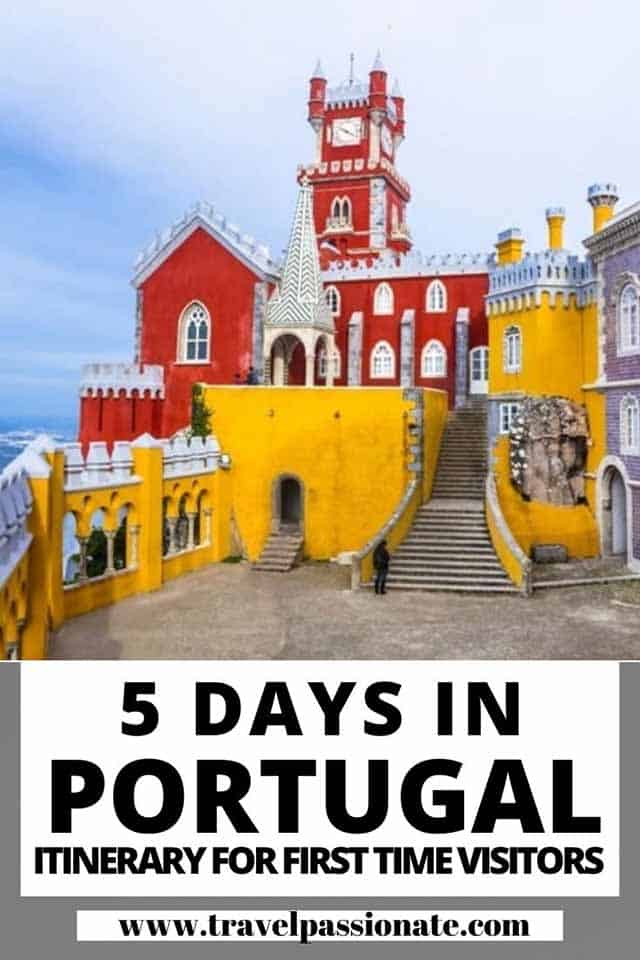
Source: https://travelpassionate.com/5-days-in-portugal-itinerary-for-first-time-visitors/